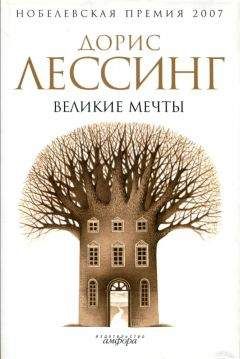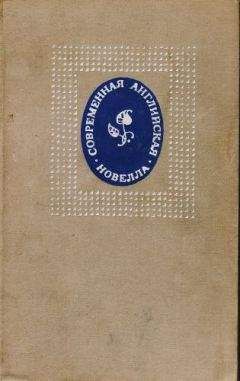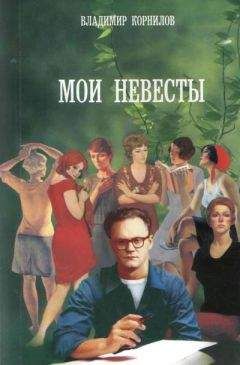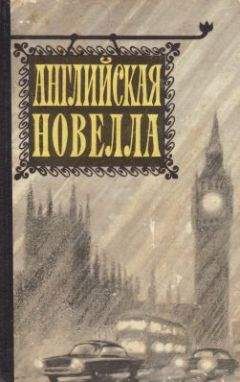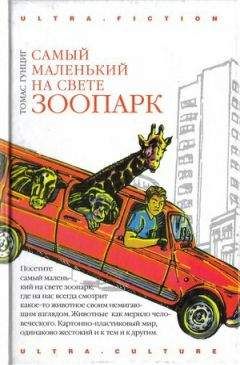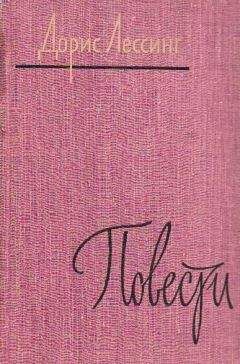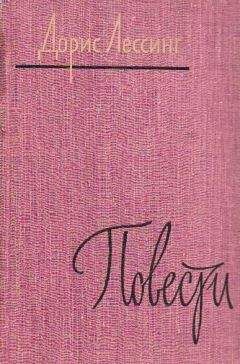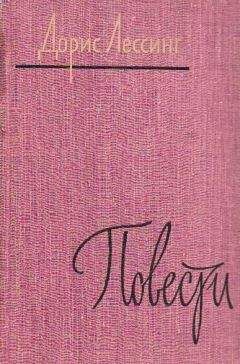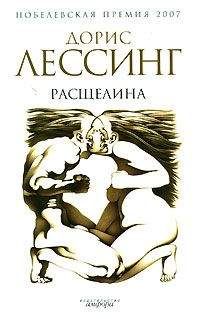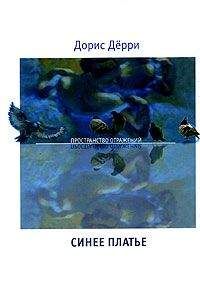Дорис Лессинг - Маленький Темби. A Little Tembi
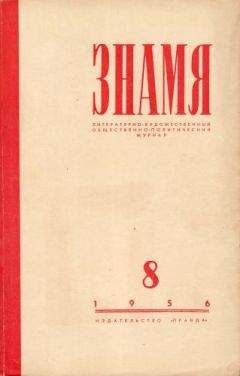
Скачивание начинается... Если скачивание не началось автоматически, пожалуйста нажмите на эту ссылку.
Жалоба
Напишите нам, и мы в срочном порядке примем меры.
Описание книги "Маленький Темби. A Little Tembi"
Описание и краткое содержание "Маленький Темби. A Little Tembi" читать бесплатно онлайн.
Рассказ о непростых взаимоотношениях фермеров-англичан и южноафриканцев.
Tembi sulked. He no longer took baskets of green stuff from door to door in the compound. And he did as little work as he need without actually neglecting it. The spirit had gone out of him.
'You know, said Jane half indignantly, half amused, to Willie: 'Tembi behaves as if he had some sort of claim on us.
Quite soon, Tembi came to Willie and asked to be allowed to buy a bicycle. He was then earning ten shillings a month, and the rule was that no native earning less than fifteen shillings could buy a bicycle. A fifteen-shilling native would keep five shillings of his wages, give ten to Willie, and undertake to remain on the farm till the debt was paid. That might take two years, or even longer. 'No, said Willie. 'And what does a piccanin like you want with a bicycle? A bicycle is for big men.
Next day, their eldest child's bicycle vanished from the house, and was found in the compound leaning against Tembi's hut. Tembi had not even troubled to conceal the theft; and when he was called for an interview kept silent. At last he said: 'I don't know why I stole it. I don't know. And he ran off, crying, into the trees.
'He must go, said Willie finally, baffled and angry.
'But his father and mother and the family live in our compound, protested Jane.
'I'm not having a thief on the farm, said Willie. But getting rid of Tembi was more than dismissing a thief: it was pushing aside a problem that the McClusters were not equipped to handle. Suddenly Jane knew that when she no longer saw Tembi's burning, pleading eyes, it would be a relief; though she said guiltily: 'Well, I suppose he can find work on one of the farms nearby.
Tembi did not allow himself to be sacked so easily. When Willie told him he burst into passionate tears, like a very small child. Then he ran round the house and banged his fists on the kitchen door till Jane came out. 'Missus, my missus, don't let the baas send me away. 'But Tembi, you must go, if the boss says so. i work for you, missus, I'm your boy, let me stay. I'll work for you in the garden and I won't ask for any more money. 'I'm sorry, Tembi, said Jane. Tembi gazed at her while his face hollowed into incredulous misery: he had not believed she would not take his part. At this moment his little brother came round the corner of the house carrying Jane's youngest child, and Tembi flew across and flung himself on them, so that the little black child staggered back, clutching the white infant to himself with difficulty. Jane flew to rescue her baby, and then pulled Tembi off his brother, who was bitten and scratched all over his face and arms.
'That finishes it, she said coldly. 'You will be off this farm in an hour, or the police will chase you off.
They asked Tembi's father, later, if the lad had found work; the reply was that he was garden boy on a neighbouring farm. When the McClusters saw these neighbours they asked after Tembi, but the reply was vague: on this new farm Tembi was just another labourer without a history.
Later still, Tembi's father said there had been 'trouble', and that Tembi had moved to another farm, many miles away. Then, no one seemed to know where he was; it was said he had joined a gang of boys moving south to Johannesburg for work in the gold mines.
The McClusters forgot Tembi. They were pleased to be able to forget him. They thought of themselves as good masters; they had a good name with their labourers for kindness and fair dealing; while the affair of Tembi left something hard and unassimilable in them, like a grain of sand in a mouthful of food. The name 'Tembi' brought uncomfortable emotions with it; and there was no reason why it should, according to their ideas of right and wrong. So at last they did not even remember to ask Tembi's father what had become of him: he had become another of those natives who vanish from one's life after seeming to be such an intimate part of it.
It was about four years later that the robberies began again. The McClusters' house was the first to be rifled. Someone climbed in one night and took the following articles: Willie's big winter coat, his stick, two old dresses belonging to Jane, a quantity of children's clothing and an old and battered child's tricycle. Money left lying in a drawer was untouched. 'What extraordinary things to take, marvelled the McClusters. For except for Willie's coat, there was nothing of value. The theft was reported to the police, and a routine visit was made to the compound. It was established that the thief must be someone who knew the house, for the dogs had not barked at him; and that it was not an experienced thief, who would certainly have taken money and jewellery.
Because of this, the first theft was not connected with the second, which took place at a neighbouring farmhouse. There, money and watches and a gun were stolen. And there were more thefts in the district of the same kind. The police decided it must be a gang of thieves, not the ordinary pilferer, for the robberies were so clever and it seemed as if several people had planned them. Watchdogs were poisoned; times were chosen when servants were out of the house; and on two occasions someone had entered through bars so closely set together that no one but a child could have forced his way through.
The district gossiped about the robberies; and because of them, the anger lying dormant between white and black, always ready to flare up, deepened in an ugly way. There was hatred in the white people's voices when they addressed their servants, that futile anger, for even if their personal servants were giving information to the thieves, what could be done about it? The most trusted servant could turn out to be a thief. During these months when the unknown gang terrorized the district, unpleasant things happened; people were fined more often for beating their natives; a greater number of labourers than usual ran away over the border to Portuguese territory; the dangerous, simmering anger was like heat growing in the air. Even Jane found herself saying one day: 'Why do we do it? Look how I spend my time nursing and helping these natives! What thanks do I get? They aren't grateful for anything we do for them. This question of gratitude was in every white person's mind during that time.
As the thefts continued, Willie put bars in all the windows of the house, and bought two large fierce dogs. This annoyed Jane, for it made her feel confined and a prisoner in her own home.
To look at a beautiful view of mountains and shaded green bush through bars, robs the sight of joy; and to be greeted on her way from house to storerooms by the growling of hostile dogs who treated everyone, black and white, as an enemy, became daily more exasperating. They bit everyone who came near the house, and Jane was afraid for her children. However, it was not more than three weeks after they were bought that they were found lying stretched in the sun, quite dead, foam at their mouths and their eyes glazing. They had been poisoned, it looks as if we can expect another visit, said Willie crossly; for he was by now impatient of the whole business. 'However, he said impatiently, 'if one chooses to live in a damned country like this, one has to take the consequences. It was an exclamation that meant nothing, that could not be taken seriously by anyone, During that time, however, a lot of settled and contented people were talking with prickly anger about 'the damned country'. In short, their nerves were on edge.
Not long after the dogs were poisoned, it became necessary for Willie to make the trip into town, thirty miles off. Jane did not want to go; she disliked the long, hot, scurrying day in the streets. So Willie went by himself.
In the morning, Jane went to the vegetable garden with her younger children. They played around the water-butt, by themselves, while she staked out a new row of beds; her mind was lazily empty, her hands working quickly with twine and wooden pegs. Suddenly, however, an extraordinary need took her to turn around sharply, and she heard herself say: 'Tembi! She looked wildly about her; afterwards it seemed to her she had heard him speak her name. It seemed to her that she would see a spindly earnest-faced black child kneeling behind her between the vegetable beds, poring over a tattered picture book. Time slipped and swam together; she felt confused; and it was only by looking determinedly at her two children that she regained a knowledge of how long it had been since Tembi followed her around the garden.
When she got back to the house, she sewed on the veranda. Leaving her chair for a moment to fetch a glass of water, she found her sewing basket had gone. At first she could not believe it. Distrusting her own senses, she searched the place for her basket, which she knew very well had been on the veranda not a few moments before. It meant that a native was lingering in the bush, perhaps a couple of hundred yards away, watching her movements. It wasn't a pleasant thought. An old uneasiness filled her; and again the name 'Tembi' rose into her mind. She took herself into the kitchen and said to the cookboy: 'Have you heard anything of Tembi recently? But there had been no news, it seemed. He was 'at the gold mines'. His parents had not heard from him for years.
'But why a sewing basket? muttered Jane to herself, incredulously. 'Why take such a risk for so little? It's insane.
That afternoon, when the children were playing in the garden and Jane was asleep on her bed, someone walked quietly into the bedroom and took her big garden hat, her apron, and the dress she had been wearing at morning. When Jane woke and discovered this, she began to tremble, half with anger, half with fear. She was alone in the house, and she had the prickling feeling of being watched. As she moved from room to room, she kept glancing over her shoulder behind the angles of wardrobe and cupboard, and fancied that Tembi's great imploring eyes would appear there, as unappeasable as a dead person's eyes, following her.
She found herself watching the road for Willie's return. If Willie had been there, she could have put the responsibility on to him and felt safe: Jane was a woman who depended very much on that invisible support a husband gives. She had not known, before that afternoon, just how much she depended on him; and this knowledge — which it seemed the thief shared — made her unhappy and restless. She felt that she should be able to manage this thing by herself, instead of waiting helplessly for her husband. I must do something, I must do something, she kept repeating.
It was a long, warm, sunny afternoon. Jane, with all her nerves standing to attention, waited on the veranda, shading her eyes as she gazed along the road for Willie's car. The waiting preyed on her. She could not prevent her eyes from returning again and again to the bush immediately in front of the house, which stretched for mile on mile, a low, dark scrubby green, darker because of the lengthening shadows of approaching evening. An impulse pulled her to her feet, and she marched towards the bush through the garden. At its edge she stopped, peering everywhere for those dark and urgent eyes, and called, 'Tembi, Tembi. There was no sound. 'I won't punish you, Tembi, she implored. 'Come here to me. She waited, listening delicately, for the slightest movement of branch or dislodged pebble. But the bush was silent under the sun; even the birds were drugged by the heat; and the leaves hung without trembling. 'Tembi! she called again; at first peremptorily, and then with a quaver in her voice. She knew very well that he was there, flattening himself behind some tree or bush, waiting for her to say the right word, to find the right things to say, so that he could trust her. It maddened her to think he was so close, and she could no more reach him than she could lay her hands on a shadow. Lowering her voice persuasively she said: 'Tembi, I know you are there. Come here and talk to me. I won't tell the police. Can't you trust me, Tembi?
Not a sound, not a whisper of a reply. She tried to make her mind soft and blank, so that the words she needed would appear there, ready for using. The grass was beginning to shake a little in the evening breeze, and the hanging leaves tremored once or twice; there was a warm mellowing of the light that meant the sun would soon sink; a red glow showed on the foliage, and the sky was flaring high with light. Jane was trembling so she could not control her limbs; it was a deep internal trembling, welling up from inside, like a wound bleeding invisibly. She tried to steady herself. She said: This is silly, 1 can't be afraid of little Tembi! How could I be? She made her voice firm and loud and said: 'Tembi, you are being very foolish. What's the use of stealing things like a stupid child? You can be clever about stealing for a little while, but sooner or later the police will catch you and you will go to prison. You don't want that, do you? Listen to me, now. You come out now and let me see you; and when the boss comes I'll explain to him, and I'll say you are sorry, and you can come back and work for me in the vegetable garden. I don't like to think of you as a thief, Tembi. Thieves are bad people. She stopped. The silence settled around her; she felt the silence like a coldness, as when a cloud passes overhead. She saw that the shadows were thick about her and the light had gone from the leaves, that had a cold grey look. She knew Tembi would not come out to her now. She had not found the right things to say. 'You are a silly little boy, she announced to the still listening bush. 'You make me very angry, Tembi. And she walked very slowly back to the house, holding herself calm and dignified, knowing that Tembi was watching her, with some plan in his mind she could not conjecture.
When Willie returned from town, tired and irritable as he always was after a day of traffic, and interviewing people, and shopping, she told him carefully, choosing her words, what had happened. When she told how she had called to Tembi from the verges of the bush, Willie looked gently at her and said: 'My dear, what good do you think that's going to do? 'But Willie, it's all so awful… Her lips began to tremble luxuriously, and she allowed herself to weep comfortably on his shoulder. 'You don't know it is Tembi, said Willie. 'Of course it's Tembi. Who else could it be? The silly little boy. My silly little Tembi…
She could not eat. After supper she said suddenly: 'He'll come here tonight. I'm sure of it.
'Do you think he will? said Willie seriously, for he had a great respect for Jane's irrational knowledge. 'Well, don't worry, we'll be ready for him. if he'd only let me talk to him, said Jane. 'Talk to him! said Willie. 'Like hell! I'll have him in prison. That's the only place for him. 'But,Willie… Jane protested, knowing perfectly well that Tembi must go to prison.
It was then not eight o'clock. 'I'll have my gun beside the bed, planned Willie. 'He stole a gun, didn't he, from the farm over the river? He might be dangerous. Willie's blue eyes were alight; he was walking up and down the room, his hands in his pockets, alert and excited: he seemed to be enjoying the idea of capturing Tembi, and because of this Jane felt herself go cold against him. It was at this moment that there was a sound from the bedroom next door. They sprang up, and reached the entrance together. There stood Tembi, facing them, his hands dangling empty at his sides. He had grown taller, but still seemed the same lithe, narrow child, with the thin face and great eloquent eyes. At the sight of those eyes Jane said weakly: 'Willie
Подписывайтесь на наши страницы в социальных сетях.
Будьте в курсе последних книжных новинок, комментируйте, обсуждайте. Мы ждём Вас!
Похожие книги на "Маленький Темби. A Little Tembi"
Книги похожие на "Маленький Темби. A Little Tembi" читать онлайн или скачать бесплатно полные версии.
Мы рекомендуем Вам зарегистрироваться либо войти на сайт под своим именем.
Отзывы о "Дорис Лессинг - Маленький Темби. A Little Tembi"
Отзывы читателей о книге "Маленький Темби. A Little Tembi", комментарии и мнения людей о произведении.







